Book review: Revelation, Four Views–A Parallel Commentary
by Steve Gregg
★★★★★
If you begin with the premise that Revelation is inspired scripture, and wish to understand or choose from the four primary interpretations, then you won’t find a better book out there than this one. This was definitely a favorite during my research. Dare I say so myself: if you couple my book, which takes a historical look at Revelation and does not presume it’s inspired, with this book, which details the various ways believers read Revelation, you’ll get a well-rounded picture.
Gregg goes verse-by-verse through Revelation and, with four columns side-by-side, describes how proponents of the four interpretive methods read the scripture. These four types are as follows:
The Historicist approach sees Revelation as surveying the entire church history, from Christ through today and beyond. Events described in Revelation reach fulfillment gradually, through the centuries.
The Preterist approach assumes fulfillment in the first century, and usually assumes an early writing of Revelation (before the war of 70 AD.) Revelation prophecies this “war to end of wars” in which Jerusalem is overrun and the Temple destroyed. This is closest to my own treatment, though a better label for my perspective would be contemporary-historical.
The Futurist approach awaits fulfillment in the future. This needs no further introduction; among today’s Christians, this is by far the most popular interpretation, though it wasn’t necessarily so throughout Christian history.
The Spiritual approach is Gregg’s label for those who do not look for a literal interpretation, but rather see spiritual lessons and principles in the symbolism that runs rampant through this mysterious scripture.
All four interpretations are illuminating, and many readers, upon completion of this study, conclude that Revelation must be a complex combination of the above. Certainly, Revelation is revealed to be a book of deep meaning, seldom contemplated in its entirety by most Christians.

Book review: How God Changes Your Brain
by Andrew Newberg, M.D. and Mark Robert Waldman
★★★★
I see this as two books in one: first, a basic look at the malleability of our brain and how it can be trained–specifically, how spiritual practices rebuild neural paths within our brain–and second, a practical guide to basic meditation.
I give the first half five stars. I didn’t read all of the second half. Guess that means I should drop my rating one star. It’s not that I’m not interested in meditation, because I’m thoroughly convinced of its spiritual and mental value; it’s that, like 95% of the rest of you, I ignore what’s good for me in favor of what I enjoy. And I enjoy learning about the brain.
This isn’t an evangelical book. It won’t direct you to Christianity or Eastern religions or any other belief system. Nor is it ragging on the evils of religion, as the title might make you think. It’s a very positive-minded book about the value of prayer, meditation, and belief. “God” does change your brain, because repeated mental exercise and directed thinking rebuilds neural paths for a healthier, happier life. If–as is my observation–Christians in general live happier, healthier lives than non-believers, there is a solid, scientific reason for that. The Christian brain is wired for spiritual well-being.
I emphasize Christians only because Christianity is my heritage. This book is written for skeptics and believers alike, and definitely worth reading.

Book review: Jesus of Nazareth
by Paul Verhoeven
★★★★
Question: What happens when an accomplished film maker delves into the realm of historical Jesus scholarship?
Answer: Fresh insight.
Paul Verhoeven is the only non-theologian admitted to the Jesus Seminar, a group of scholars dedicated to uncovering the historical Jesus. While his book will not be recognized for the depth of research that goes into the books of more noted scholars, it’s still an interesting read.
Verhoeven digs into the relationship between Jesus and John the Baptist, the sin of riches, exorcisms, and much more to paint Jesus in human terms. Jesus is not an ideal for Verhoeven, but a living, breathing person, with fears and failures alongside his accomplishments. Jesus is a hunted criminal who masterfully escapes the long arm of the law…until an apostate disciple masquerading as a Zealot (not likely one of the twelve, nor even named Judas, according to Verhoeven) leads the authorities to him.
After Jesus’ crucifixion, his disciples believed he returned from the dead. But if the whole of the Jesus story were wrapped up in this miracle of overcoming death, Christianity could not have survived for 2,000 years. Jesus created powerful parables and devised a new code of ethics; regardless of his false understanding that the kingdom of God was imminent, he indeed transformed the world. Verhoeven closes his book with this paradox: Jesus’ mistaken view of reality led to the most significant ethical revival in the past two thousand years.

Book review: God and Sex
by Michael Coogan
★★★★★
If you’re hoping for a biblical Harlequin, look elsewhere. This is a heavy little book, even a little overwhelming, as it delves into the sexual inequalities of biblical times. I found the book rather dark in places; an obvious agenda of the author is to extol how grateful we should be to have outgrown the biblical view of women as property. Indeed there are multiple horror stories of how women were treated in the Bible, but is it healthy to overdose on this topic? Coogan touches only briefly on the other side of the coin–the radical change in treatment encouraged by Jesus and his earliest followers. Even Paul, says Coogan, suppressed women, as he argues against current scholarship that many of the suppressive teachings recorded by “Paul” were actually later writings.
But, thankfully, the book isn’t entirely about sexual inequality. Some of the topics are more light-hearted. You’ll learn about sexual innuendos which shed light on several passages in the Bible; you’ll find out whether David and Jonathan were gay lovers (they weren’t); you’ll learn about the sin of Sodom and Gomorrah (it wasn’t sodomy, or even sexual perversity); you’ll learn about Yahweh’s wife in Israel’s most primitive beliefs, including several passages from the Bible. I highly recommend the book, and I guarantee you’ll learn from it.

Book Review: Christ the Lord: Out of Egypt
by Anne Rice
★★★★
I’m trying to be fair; this really isn’t my kind of book. It’s highly speculative and it’s fiction. Then I’m reminded of the book I just published about Revelation; it, too, is fiction (well, 1/3 of it is fiction) and it, too, will surely be considered highly speculative by many. I’d like to think, however, that my book is grounded in more solid research than Rice’s; mine is, after all, hailed by other scholars as historically plausible.
Given, then, that we are discussing a purely fictional account of Jesus’ years as a child, my review must be based upon whether or not the story held my interest. It did for a time; Anne Rice is a good writer. But I have a quest to learn (I seldom read fiction), and I really felt I was learning very little, so I nearly didn’t finish the book.
I think readers who do not have a background in early Christian literature will be at a disadvantage. For example, in the story, the child Jesus sculpts a bird out of clay, then gives it life and it flies away. Um, really? But scholars will recognize the story from the Infancy Gospel of Thomas, which Rice latches onto and includes in her book, caring not that no historian of this gnostic gospel considers it to be true. The story is pure mythology, and not even Biblical myth.
Who, then, is the audience for this book? Not fundamentalist Christians, who will take offense at this portrayal of the Christ child. It isn’t “biblical.” Not historians, who will be unable to take it seriously. If Anne Rice is celebrating her return to Christianity with this series (the book is the first of a promised series) then it’s an odd way to start out, wouldn’t you think?
The answer, of course, is that Rice is writing mythology after the manner of Gospels; she collects stories, builds a personality for Christ as a youngster, then puts it all together in much the same way as Gospel writers did 2,000 years ago…honoring Christ not in fact, but in storytelling. And that’s why I’m writing this review today, 5 days before Christmas. Today, as I drive down the streets of Minneapolis, I see manger scenes; scenes I know to be mythic, but beautiful and inspiring none-the-less. We have taken two contradictory Gospel renditions of Jesus’ birth (Matthew and Luke), spliced them together, added some nice touches, and created an idyllic Christmas picture. In the same spirit of honoring Christ in myth, we can enjoy Anne Rice’s fictive “gospel”, and even give it … well, four stars.

Book review: The Miracle Detective
by Randal Sullivan
★★★★
In the war-torn country of Yugoslavia, late 1980’s, a cluster of children (ages up through 16) began seeing the Virgin Mary and reporting her words. Medjugorje, if you’ve ever heard of the place, appeared protected from the war by the madonna.
The Miracle Detective describes Sullivan’s trip into the world of miracles and the investigation of these miracles by the Catholic church. By the end of the book, even Sullivan has been deeply affected by his brush with the supernatural, and it is this personal journal by the author that makes the book most interesting.
Nearly all the experts that researched Medjugorje and interviewed (interrogated) the children came to the same conclusion: there was no attempt to deceive, and the children truly experienced the unexplainable. Others around them could not see Mary, yet the children’s eyes moved in unison as they tracked her progress through the air; they reported the same message from heaven; and they showed no response to any pain or attention-grabbing administered by the “experts” while in their vision state. Many other visitors to this sacred site experienced supernatural healings. Surely, the madonna herself was to be found in this place!
But what did the Church think? It’s still under investigation, 20-25 years later. As one priest explained to Sullivan, the Church does not merely test for the unexplainable; a true miracle from God must pass several tests, such as “theological correctness, usefulness to the Church, and a clear relationship between the messages the person reports and changes in the quality of their own lives.” Unquestionably, the experiences rocked the lives of these children and many others who visited (and still visit) Medjugorje, but what is the Church to think when Mary, queen of heaven, arrives with the message that we should respect all religions, even (perhaps especially) Islam?
I found the book interesting, one I’m glad I read, though it was a bit long. But, sorry, I’ve no opinion yet on the authenticity of the visions. 

Book review: Reading Judas
by Elaine Pagels and Karen L. King
★★★★
This is a fun one. Short and sweet, Karen and Elaine share their unique interpretation of this fascinating discovery. Scholars of the gospel of Judas would never consider it mainstream Christianity … can any book who paints a Christian villian as a hero be mainstream? … and yet, there remains a lot of controversy about exactly how to classify that ancient Gospel. Part of the problem, of course, is that it’s far from complete; and while that’s certainly not the fault of Pagels and King, it does disrupt the readability of their book when pieces of the manuscript are missing.
The subtitle of the book is “The Gospel of Judas and the Shaping of Christianity.” This discussion of early Christianity is, precisely, what makes the Pagels/King book interesting. They delve into the conflict between Paul and Peter, and how later writers (such as the book of Acts) purposefully glossed over this conflict in an attempt to bring unison.
The book is in two parts: First, a discussion of the gospel and it setting, and second, an interpretation of the gospel itself with commentary. Karen King translates it herself, and their understanding is unique, quite different from other coverage of the gospel of Judas, as they are unafraid to give serious attention to alternative strands of Christianity and their meaning of the cross, the suffering of martyrs, and of Jesus’ divinity. These were important topics in the early years of Christianity, and Christians today are, for the most part, quite unaware of the divisive strands that existed in those days.
Pagels and King do present controversial views (I found myself often disagreeing), but regardless of your beliefs or opinions, this is a fascinating read about an equally fascinating topic.

Book review: The Fourth Gospel and the Quest for Jesus
by Paul N. Anderson
★★★★★
A boring looking book, eh? Don’t let the blandness of the cover fool you. This skinny little book may be one of the most important theological efforts of the last five years. My next book will be about the Gospel of John, and Anderson’s book contributed significantly to my research.
John’s Gospel differs so significantly from the Synoptic Gospels (Matthew, Mark and Luke) that the question arises often between scholars: Do we trust John, or the other three? In one simple example, the Synoptics present a one-year ministry of Jesus, whereas John indicates at least a three-year ministry. But since John’s Gospel reads so mystically (a more acceptable word may be “spiritually”), and since he seems outnumbered 3-to-1, most scholars through the centuries have given it little weight. It gets relegated to the pulpit as the “fourth Gospel,” as if it didn’t deserve a name.
Recent archaeological discoveries, however, have proven John’s Gospel spot-on in a number of its claims. John is also the one Gospel that claims to be an eye-witness account. Anderson jumps on the bandwagon of recent scholarship and presents his argument that this Gospel is equally historically accurate, and as important to understanding the life of Jesus, as the Synoptics. And, of course, I believe he is right.

The casual reader may find little to hold their interest in this book, but the scholar and the pastor cannot afford to be without it.
Book review: The Birth of Christianity
by John Dominic Crossan
★★★★
I’ve read many of Crossan’s books, and although they can be dry, they do always provide something to sink your teeth into. He seems to write two kinds of books: Long, scholarly tomes, and short, interesting summaries. The Birth of Christianity is (unfortunately or fortunately, depending upon your purpose for reading) of the former type.
Crossan attempts in this book to initiate more scholarly research into the early years of Christianity, by which he means those years after Christ died but before the Gospels were published. Years 30-70 AD. His ideas are controversial–hey, every publication by every liberal Christian will be controversial–but they are well documented. In my opinion, too well documented. I don’t think Crossan needs 641 pages to explain and support his research. He delves deeply, for example into the topic “memory and orality,” to bolster his opinion about how poorly our memories operate and thus how unreliable oral transmission is.
Nevertheless, Crossan’s picture of early Christianity and particularly his long discussion of various types of eschatology (apocalyptic, ascetical, ethical) are important to the understanding of the Jesus movement of the first century. He explains how different communities of Christians could share different eschatological ideas–and you don’t have to think of eschatology as the end of the universe, but merely the end of an age and the dawning of a new kind of life–and develop very different brands of Christianity. Crossan traces the emphasis of early Christian communities into two traditions: Jesus’ “life” and “death.” The moral teachings of Jesus and the passion-resurrection tradition. Both, Crossan insists, are very early traditions; for example, he discusses the Common Meal Tradition. Is it a giving-sharing experience, or a eucharistic experience? From this merger of traditions grew the latter church.
I definitely recommend reading The Birth of Christianity and I think it will be an important foundation for continuing research into this era. I would not, however, insist that the casual read the entire book cover to cover. Perhaps he will one day publish an abbreviated version. 


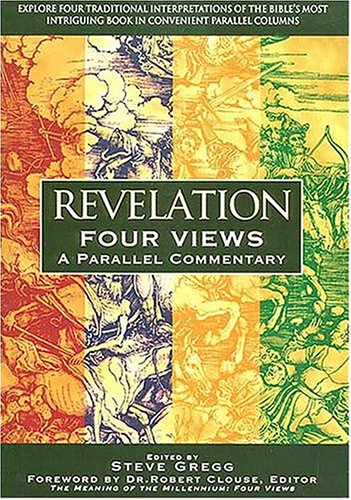
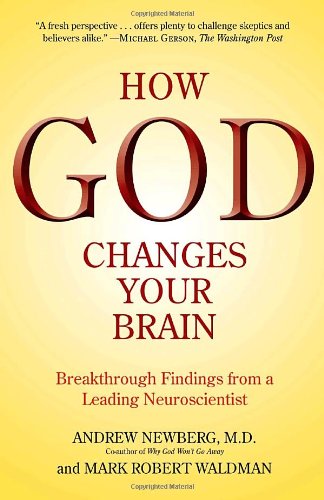


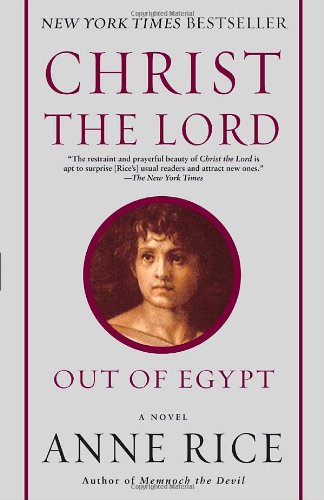
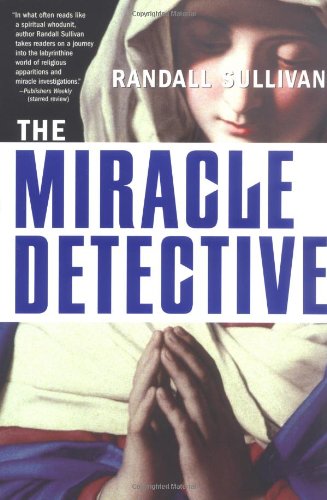
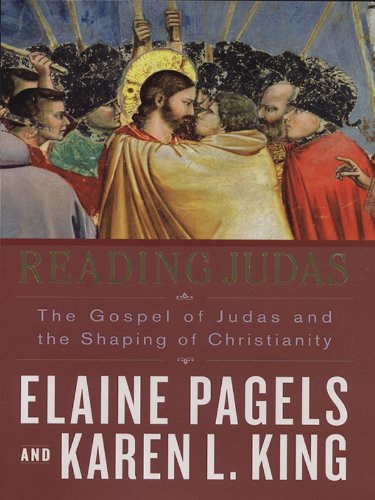











 354 Circles
354 Circles
 603 Goodreads Friends & Fans
603 Goodreads Friends & Fans

 Hello! I'm an author, historical Jesus scholar, book reviewer, and liberal Christian, which means I appreciate and attempt to exercise the humanitarian teachings of Jesus without getting hung up on any particular supernatural or religious beliefs.
The Bible is a magnificent book that has inspired and spiritually fed generations for thousands of years, and each new century seems to bring a deeper understanding of life’s purpose. This is true of not only Christianity; through the years, our age-old religions are slowly transforming from superstitious rituals into humanitarian philosophies. In short, we are growing up, and I am thrilled to be riding the wave.
I avidly read all thought-provoking religion titles. New authors: I'd love to read and review your book!
Hello! I'm an author, historical Jesus scholar, book reviewer, and liberal Christian, which means I appreciate and attempt to exercise the humanitarian teachings of Jesus without getting hung up on any particular supernatural or religious beliefs.
The Bible is a magnificent book that has inspired and spiritually fed generations for thousands of years, and each new century seems to bring a deeper understanding of life’s purpose. This is true of not only Christianity; through the years, our age-old religions are slowly transforming from superstitious rituals into humanitarian philosophies. In short, we are growing up, and I am thrilled to be riding the wave.
I avidly read all thought-provoking religion titles. New authors: I'd love to read and review your book!
 Hi! While Lee writes the articles and reviews the books, I edit, organize, and maintain the blog. The views expressed here are Lee's but I'm his biggest supporter! :-)
Hi! While Lee writes the articles and reviews the books, I edit, organize, and maintain the blog. The views expressed here are Lee's but I'm his biggest supporter! :-)
Connect With Me!